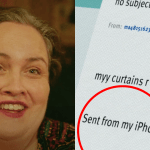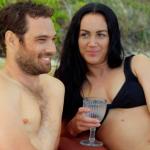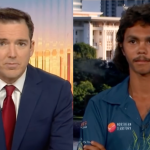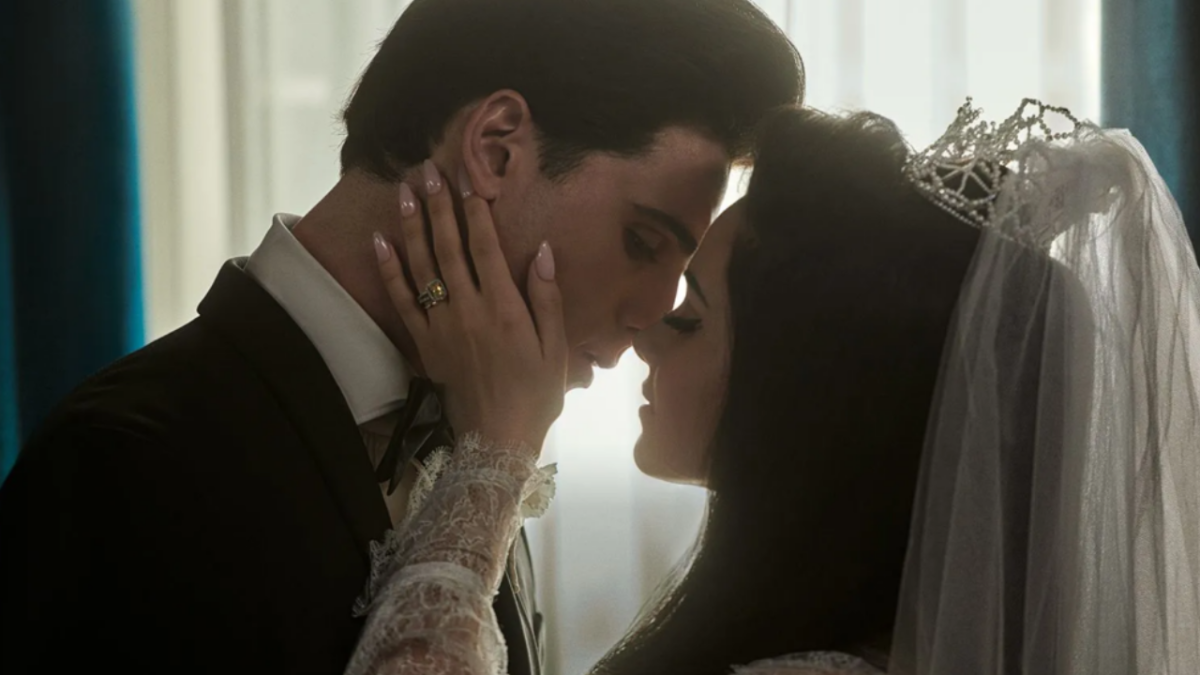
Sofia Coppola‘s film Priscilla dances along the edge of a touchy subject. Because, no matter how you slice it, Priscilla Beaulieu was a 14-year-old child pursued by Elvis Presley, who was 10 years her senior. And yet Coppola manages to create a nuanced, empathetic and stunningly cinematic film that truly captures Priscilla’s experience — good and bad.
We chatted with the Oscar-winning director to find out how she walked the tightrope between telling the rags-to-riches story of a wide-eyed young girl from Texas with Priscilla’s stark reality.
After so much focus in modern film on the life of Elvis Presley, Coppola’s latest endeavour shines a light on the experience of his ex-wife. Told in the typically beautiful way only Coppola knows how, the story begins when Priscilla (Cailee Spaeny) is a young teenager, meeting a 24-year-old Elvis (Jacob Elordi) at a diner during his military service.
It’s not long before the pair begin a courtship with the support of Priscilla’s parents — despite their 10-year age gap. From there, Priscilla’s life changes forever.
The thing is, Priscilla was, by definition, groomed by Elvis. But throughout her life, she has repeatedly refuted claims that he was a predator. And while her 1985 memoir Elvis And Me — which the film was heavily based on — doesn’t shy away from the highs and incredible lows of their relationship, it still manages to show their relationship in a multifaceted way.
When Coppola decided to take on this project after reading Priscilla’s memoir, she spent time talking to her to get the tone right. At the forefront of her mind was how she would navigate bringing her story to life on screen through the eyes of a young girl in love, with her own protective perspective as a mother of teen girls.
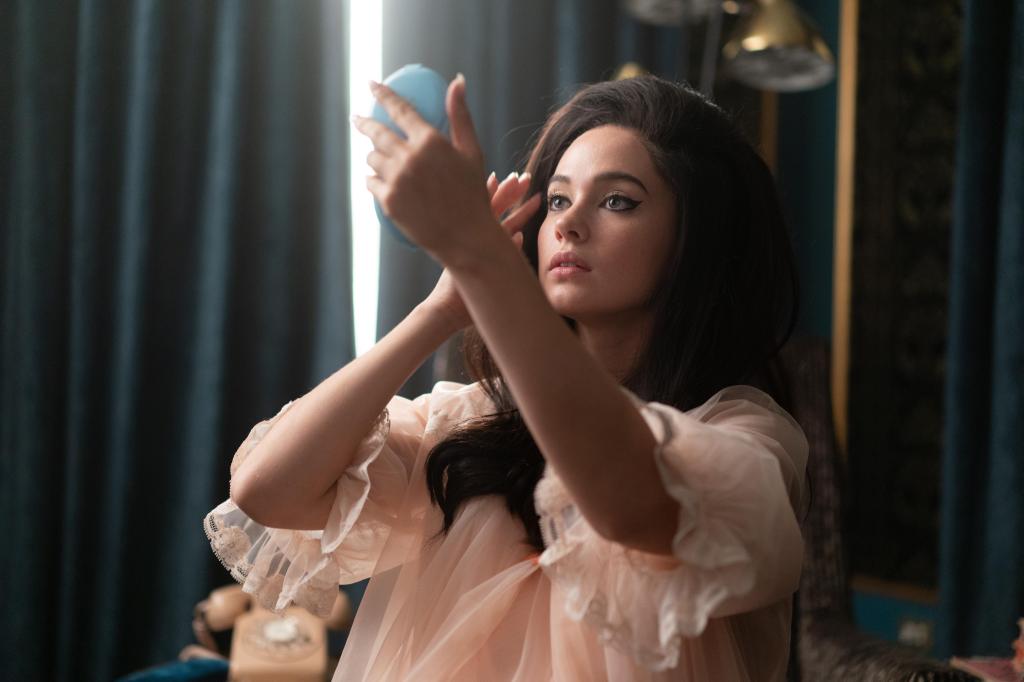
“I wanted to balance that and get that right,” she told PEDESTRIAN.TV.
“I always tried to go back to her story and her point of view and how she saw it, and it was this idealised, romantic story.
“The adult and mother in me had a different feeling about how young she was, but I always tried to go back to her story.
“I wanted to show her experience and then let the audience hopefully be in her shoes with her. Then after, we can talk about all the different aspects of it. But the goal was to try to stay focused on that, and stay true to how she described how she felt.”
Admitting that it was a tricky balance, she wanted to make sure the audience understood that there was an element of fun and whimsy for Priscilla, along with the problematic elements. One example she used was how controlling Elvis was about what Priscilla wore and how she presented herself, as documented in the film.
“Even like when he dresses are up there, there was an aspect that was fun for her but then at the same time, you see him dressing her like a doll and how he wants his ideal woman to be. She talked about the pressure she felt in that too. So it was really about having both elements,” she said.
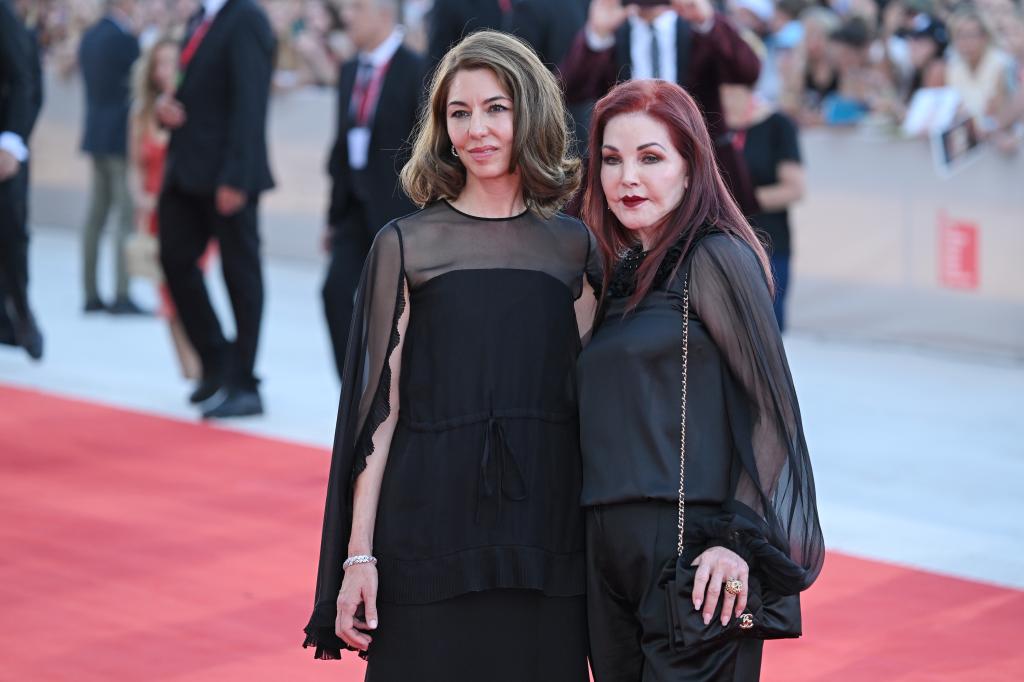
Priscilla herself — who is credited as an executive producer on the film — has admitted that she was nervous to see the final film. Thankfully, she was pleased with the result.
“I was very concerned about this movie. I think it’s right on, to be honest with you,” Presley said at a Q&A event in November last year, as per PEOPLE.
“I love her filmmaking. I think she does a great job. She is for women, and when she approached me about doing a movie about me, I was moved by it.”
However, Priscilla’s daughter Lisa Marie Presley did not hold the same sentiment, publicly slamming the project for painting her father as a “predator” and “manipulative”, according to emails obtained by Variety.
“As his daughter, I don’t read this and see any of my father in this character,” she wrote in a letter to Coppola.
“I don’t read this and see my mother’s perspective of my father. I read this and see your shockingly vengeful and contemptuous perspective.”
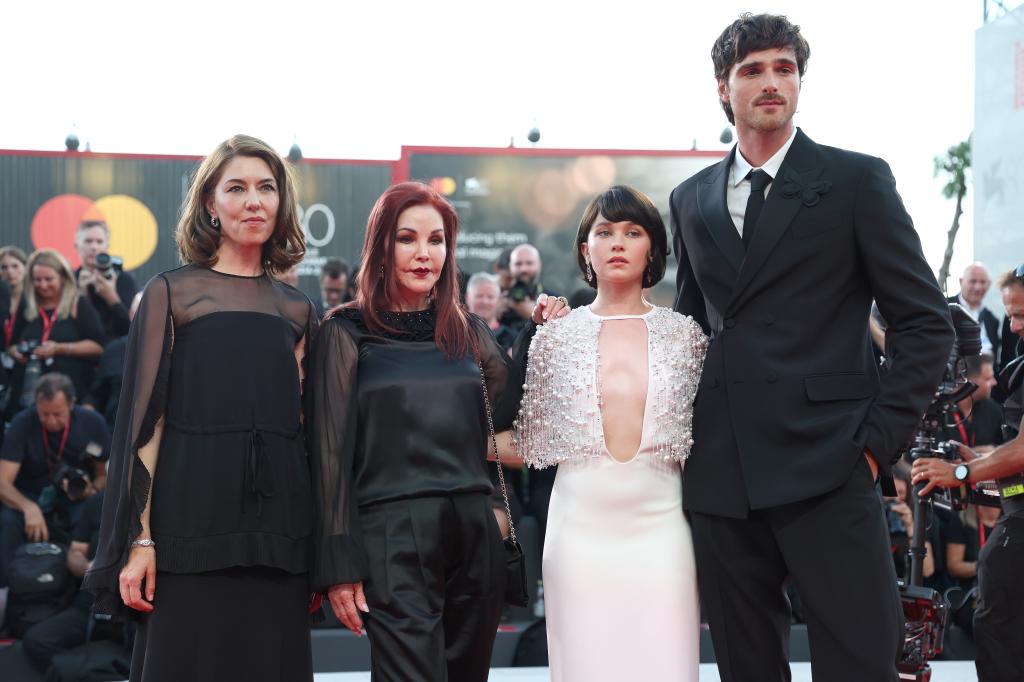
In a response shared by her team to Variety, Coppola wrote back to Lisa Marie before her death in January 2023.
“I hope that when you see the final film you will feel differently, and understand I’m taking great care in honouring your mother, while also presenting your father with sensitivity and complexity,” Coppola wrote.
In my opinion, the film certainly didn’t glamorise the relationship between Priscilla and Elvis. Instead, it highlighted how lonely, empty and trapped Priscilla felt as Elvis’ go-to gal, whilst still managing to legitimise Priscilla’s love for her husband.
Coppola is excellent at sharing the personal, private struggles of women who seem to have it all and Priscilla is no exception. And, as one of my incredibly clever colleagues pointed out, aesthetically the film feels like a Tumblr GIF from 2010 that goes for an hour and 50 minutes.
Visually, what’s not to love about that?

